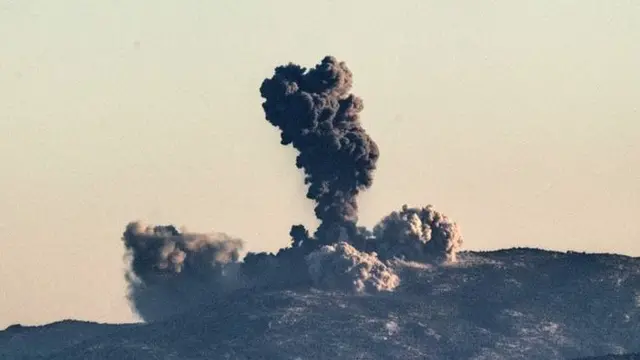By APD writer Chu Yin
Translated by Shi Xiaomeng
The trend of “flying solo” burgeoned in 2016 and has been gathering momentum in 2017. One after another, and with developed ones taking the lead, countries across the world are walking, in big strides, away from globalization and regional integration.
Britain votes to leave the European Union
Britain is propelling its Brexit resolution despite mounting difficulties. Its negotiations with the European Union have achieved a major breakthrough by the end of the year. Historically and geographically, Britain has separated itself from Europe. But it is quite surprising that mainland Europe has also shown signs of falling apart in 2017.
Anti-Muslim and anti-integration rhetoric has been making a great clamor in Europe. It was blatant in the parliamentary election in the Netherlands in March, in the French presidential election in May, and the German federal election in September. The popularity of the far-right Liberal Party in the Netherlands, the Front National in France and the Alternative for Germany has risen sharply.
Although far-right parties were stopped from winning the elections, the risk of disintegration of the European Union is still there, and it has extended into the domestic affairs in European countries. In October, the independence dispute of Catalonia caused a severe political crisis inside Spain.
On the other side of the Atlantic Ocean, since U.S. President Donald Trump took office, the Trump administration has decided to withdraw from a number of international deals such as the Trans-Pacific Partnership, the Paris Agreement, and the Global Compact on Migration. Trump also announced that the United States would quit UNESCO with a large sum of UN arrears.
Once, Western countries was leading the trend of globalization and regional integration. For leaders of the developed countries, international responsibilities and global governance were their catchphrases.
But things have changed in 2017. The Western countries seem to only care about their own business. For example, Iran, rather than any Western country, was the first to declare the end of the Islamic State, an extremist group that had been rampant for many years in the Middle East.
**How can the scenario change that much? **
First, national interest is a major driving force. Trump has been talking about “America First.” Actually the United States has never been in the second place. With the deepening of globalization, developed countries including the United States have lost their competitiveness in some manufacturing industries, as the allocation of economic resources has been optimized. Supplies have become more abundant at lower prices. Blue-collar workers do not know the big truth about globalization. They intuitively feel that "big companies run the world to make money and Asians rob our jobs.”
Catalan separatist flags fly
The EU was created out of prosperity. Their members are like relatives and friends partnering up to run a company. All are ready to add flowers to brocade, but few want to offer firewood in snowy weather. Catalonia, where separatist sentiment dates back to a long time ago, has been faring way much better than other parts of economically struggling Spain over recent years.
Refugee immigration is now a massive problem in Europe
In the European debt crisis, it came to light that some countries were ready to reap profits but unwilling to contribute while some others were taking a free ride. The refugee problem, while seriously challenging such cherished values as openness and tolerance, has also led to a more severe security crisis. But faced with a surge of bloody incidents, the European Union appeared as helpless as a paper tiger. On the other hand, Brexit has a demonstration effect: An alliance can be dismissed; integration can be reversed.
All these challenges have refreshed people’s knowledge about the world. After World War II, liberalism has prevailed in the Western world. The Affirmative Action in the United States, the European integration and the entailed reflection on racism and Nazism have led to the broadening of civil rights, the improvement of human rights, and the popularization of quality, openness and tolerance.
Recent crises, however, have exposed the dilemma of these well-accepted values. Police violence against the black has been reoccurring in the United States on the one hand, but on the other, a higher crime rate does exist among the black. Whenever an incident like this happens, the black people will go on the streets, or even cause stirs. In this light, then, are the black people parading against racism or showing defiance against law enforcement?
How should the government handle illegal immigrants? Is it a violation of human rights if the government just turn them away?
By securing the marriage rights of LGBT groups, traditional marriage would be affected; by providing more opportunities for minorities, such as blacks, to go to elite colleges, outstanding white students are deprived of their chances to go to dream schools. Is this another form of discrimination or safeguarding diversity?
Also, with refugees flooding into their hometowns, can Europeans still maintain their principles of equality, openness and tolerance when the newcomers hold drastically different culture and habits, and their presence brings about deterioration of security or even terrorism? With resentment growing against these people, “highlighting difference, reservation and exclusion” would be more politically correct.
In the long run, globalization and regional integration are still the irresistible trend. After all, we have reached unprecedented prosperity because of them. The key to the dilemma at present is “sharing and harmonizing,” but how to achieve that specifically is for the next year to witness.
Chu Yin, , Research Fellow at Asia Pacific Institute, Associate professor at University of International Relations, and Deputy director of B&R Institute of Center for China& Globalization.
(ASIA PACIFIC DAILY)
 简体中文
简体中文

